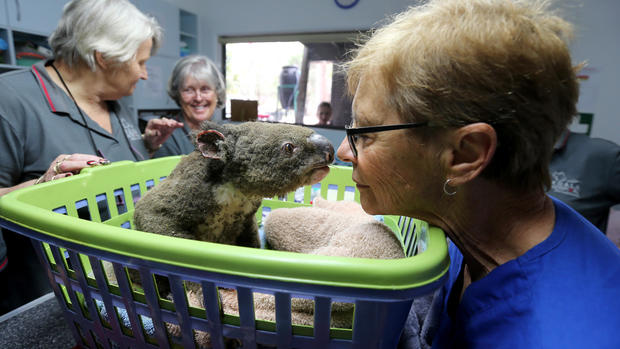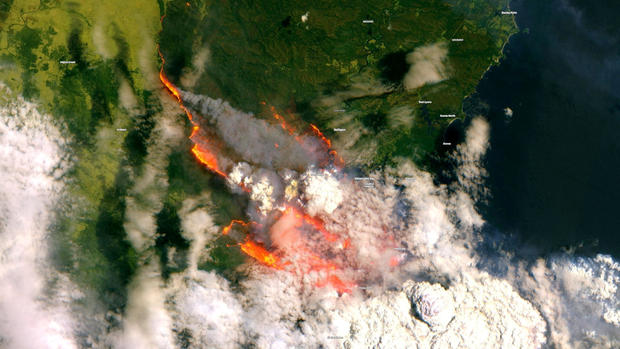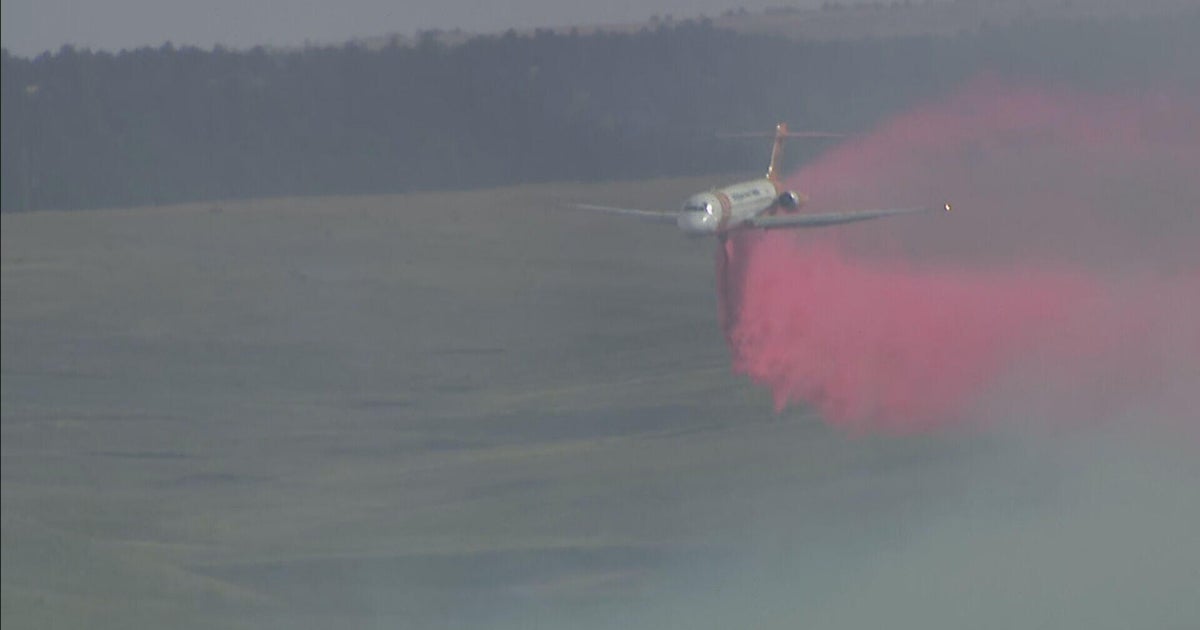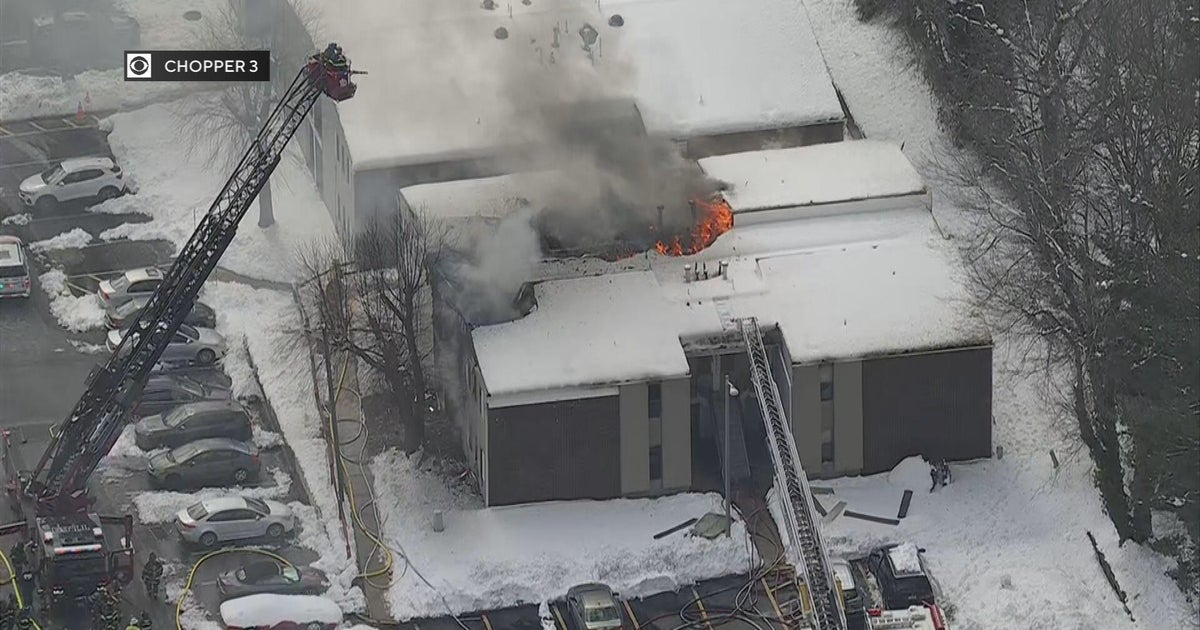Australian wildfires may have killed half a billion animals
As apocalyptic wildfires continue to rage across Australia, the loss of life in the region is reaching staggering numbers. Ecologists at the University of Sydney now estimate that nearly half a billion animals have been wiped out since the fires began several months ago.
The "mega blaze" has destroyed homes and sent thousands of people fleeing to the shoreline from New South Wales and Victoria. About 12.35 million acres of land have burned. At least 17 people have been killed, the Associated Press reports.
Approximately 480 million mammals, birds and reptiles have been lost since the fires intensified in September, the university said in a statement, and the actual number is likely "substantially higher." Devastating images and videos show kangaroos trying to flee burning forests and charred bodies of koalas lying on the ground.
The estimate is based on a 2007 report for the World Wildlife Fund Australia. Researchers found that clearing around 1.6 million acres of forest would have resulted in the deaths of around 104 million native vertebrates through the loss of food and shelter.
Professor Christopher Dickman from the University of Sydney came to his estimate after about 7.4 million acres of land had burned in the bushfires.
"Not all animals in the burned areas would necessarily be killed directly by the fires — some would fly off, others would go underground, others may find a small unburnt refuge under rocks," Dickman told CBS News on Friday. "Still, the numbers of animals directly affected by the fires are clearly huge, and prior research indicates that in severely burned areas, the resulting lack of shelter, lack of food, and incursions by invasive predators lead to further drastic but indirect reductions of animal numbers."
Koalas, which were already under threat due to significant habitat loss, have been hit particularly hard. Ecologists said nearly 8,000 koalas —about one-third of the population in their primary habitat — are believed to have died since the fires began.
"Up to 30% of their habitat has been destroyed," Australia's environment minister, Sussan Ley, told the Australian Broadcasting Corporation. "We'll know more when the fires are calmed down and a proper assessment can be made."
While animal hospitals are taking in as many animals as possible to treat burns and nurse them back to health, services have struggled to keep up. The animals that have survived will have trouble finding food and shelter amid the ongoing flames.
"The fires have burned so hot and so fast that there has been significant mortality of animals in the trees, but there is such a big area now that is still on fire and still burning that we will probably never find the bodies," Nature Conservation Council ecologist Mark Graham told parliament during an urgent December hearing regarding the koala population, News Corp Australia reports.
Koalas "really have no capacity to move fast enough to get away" from the flames, he said.
Associate Professor Dieter Hochuli from the University of Sydney said it isn't just the well-known species, such as kangaroos and koalas, that are at risk. Insects that are key to services like pollination and nutrient cycling also suffered massive losses, and it is not clear how those populations and ecosystems will recover. In addition, many rare plant species are feared to have disappeared completely.
"Fire is a natural part of Australian ecosystems and many of our plants and animals are adapted to it," Hochuli said. "However, changes to the frequency and intensity of fires can have a massive impact on wildlife. We know that risk of extinction increases exponentially as populations decline to low numbers so this raises significant concerns for their future."
Wildlife Information, Rescue and Education Services told Reuters that services typically advise against feeding wild animals. However, the inferno has prompted them to change their advice. They're now encouraging people to provide wildlife with much-needed food and water.
Australia's wildfire season may already be the worst on record, with record-breaking heatwaves and intense smoke, which doctors have deemed a "public health emergency." Many residents are protesting conservative Prime Minister Scott Morrison's lack of sufficient action against climate change after he reportedly rejected calls last month to downsize Australia's lucrative coal industry.
"The compelling issue here is climate change," said Sydney Mayor Clover Moore. "Yes, Australia is burning and national parks and our native animals are being decimated and our communities are being devastated. People have lost homes. People have died. Firefighters have been killed defending communities, most recently last night."
"As the driest continent on Earth, we're at the forefront of accelerating global warming," she continued. "What is happening is a wake-up call for our governments to start making effective contributions to reducing global emissions... It's our national governments that are failing us."





